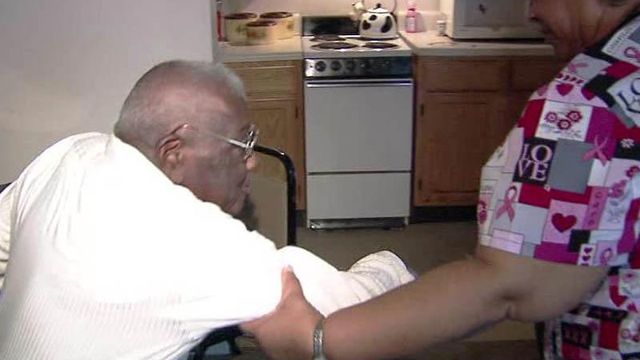DHHS: 42 percent of people getting in-home care ineligible
A review of the state's in-home care system for disabled people has found that 42 percent shouldn't be eligible for the program and the amount of care provided to another 40 percent could be cut.
Posted — UpdatedSecretary of Health and Human Services Lanier Cansler sent a letter Monday to state lawmakers in response to resistance to his department's efforts to adjust the Personal Care Services program. DHHS wants to cut spending while still serving the neediest residents with daily tasks like cooking, bathing and getting around.
About 38,000 people statewide participate in the PCS program, which is funded through Medicaid. Cansler said in his letter that an independent assessment of about 1,400 clients turned up numerous instances of abuse.
He cited a case where a woman has an aide take her shopping and to yard sales and another where a high school football player who worked last summer as a manual laborer received three hours of daily in-home care for "severe asthma."
"What we have ended up with is a program that, in too many cases, serves people who can look after themselves or who have family or community resources available," he wrote in the letter. "Given the budgetary condition the state and Medicaid find themselves in, PCS as it currently exists is no longer a luxury that North Carolina citizens and taxpayers can afford."
The $180 million PCS budget for the 2009-10 fiscal year was exhausted within six months because of unnecessary spending, he said.
Sen. Neal Hunt, R-Wake, was furious about the cases of alleged abuse.
"It's absolutely inexcusable that we would be serving people who don't need to be served," Hunt said.
Rep. Pricey Harrison, D-Guilford, said she was skeptical about DHHS' figures.
"It's hard to get an objective perspective when you've got so much money at stake, and that might be the problem," Harrison said.
Cansler argues the problem is paying for aid that people want but don't need.
"They'll take the service because it's helpful, but it's not necessary," he said Tuesday. "We want to reduce the potential of (abuse) happening (to) where we're paying for every service that is needed but not those services that are just nice to have."
The assessments have found the 40 percent of PCS clients who are receiving too much aid could have their assistance cut by an average of 21 hours a week without trouble, he said.
Home health advocates said they fear incomplete analysis will rob many who are disabled and ill of services, and they vowed to continue fighting proposed cuts to the PCS program.
"We think that the independent assessment needs to have time to be able to go out and assess these patients," said Tim Rogers, chief executive of the Association for Home and Hospice Care of North Carolina. "At the same time, they're assessing these patients under an old set of rules."
The standards people have to meet to qualify for in-home aid keep changing, Rogers said.
Cansler said truly needy individuals "are not at any risk of losing services," noting the assessments show that more than 40 percent of PCS clients should still qualify for some in-home services. They also have found that about 18 percent should be receiving an average of 15 additional hours per month of aid than they current get, he said.
• Credits
Copyright 2024 by Capitol Broadcasting Company. All rights reserved. This material may not be published, broadcast, rewritten or redistributed.






